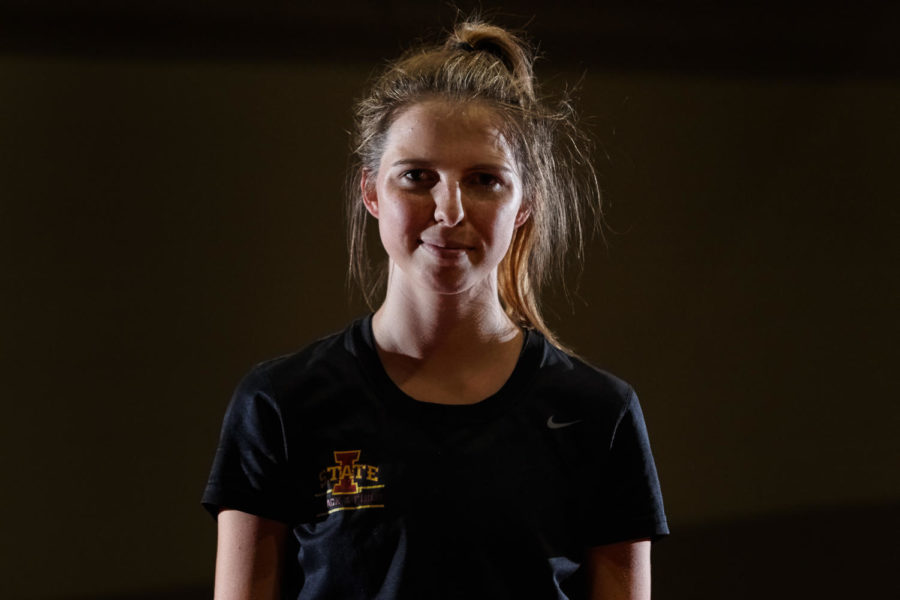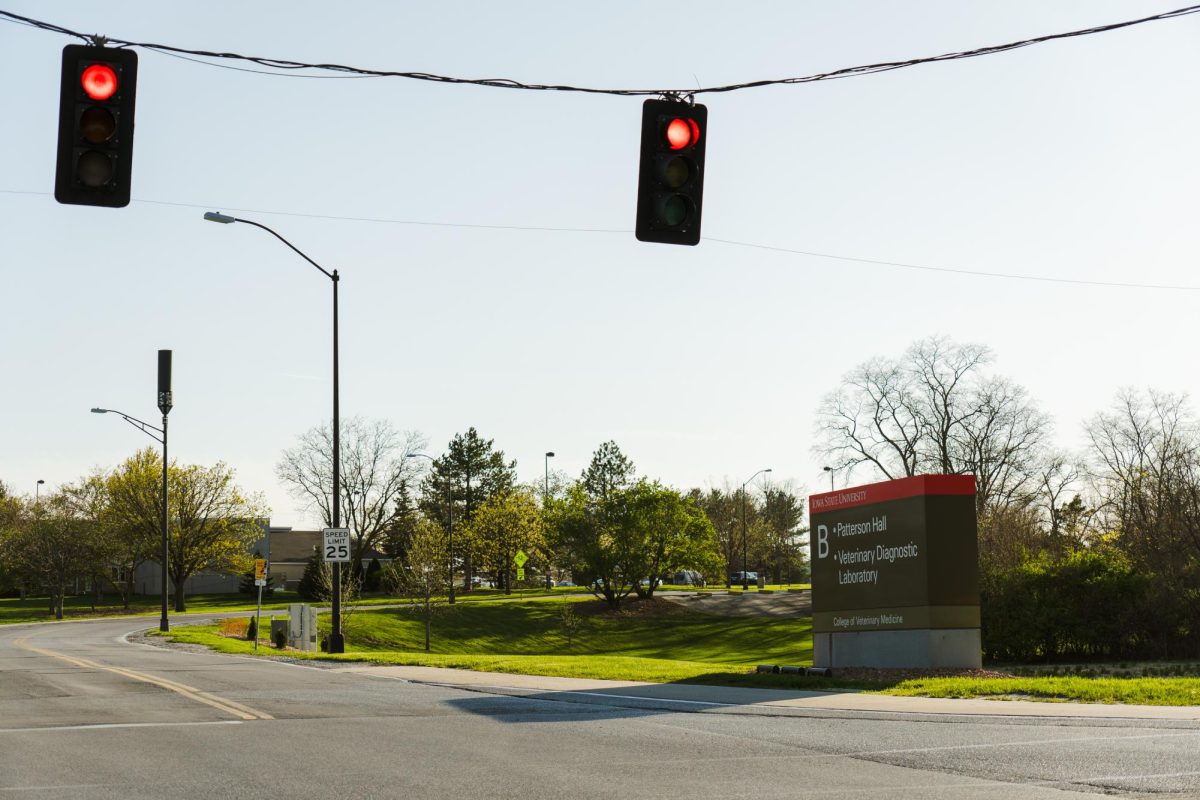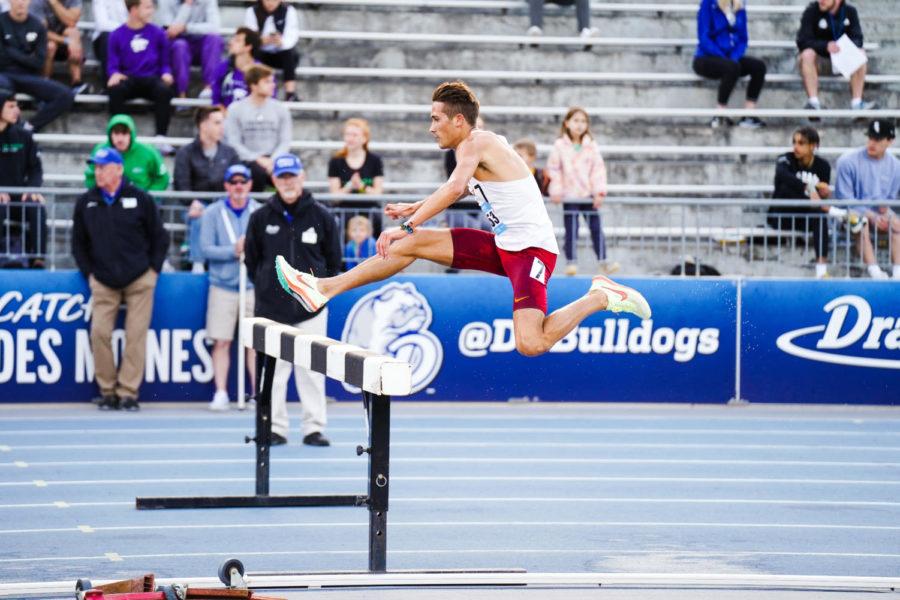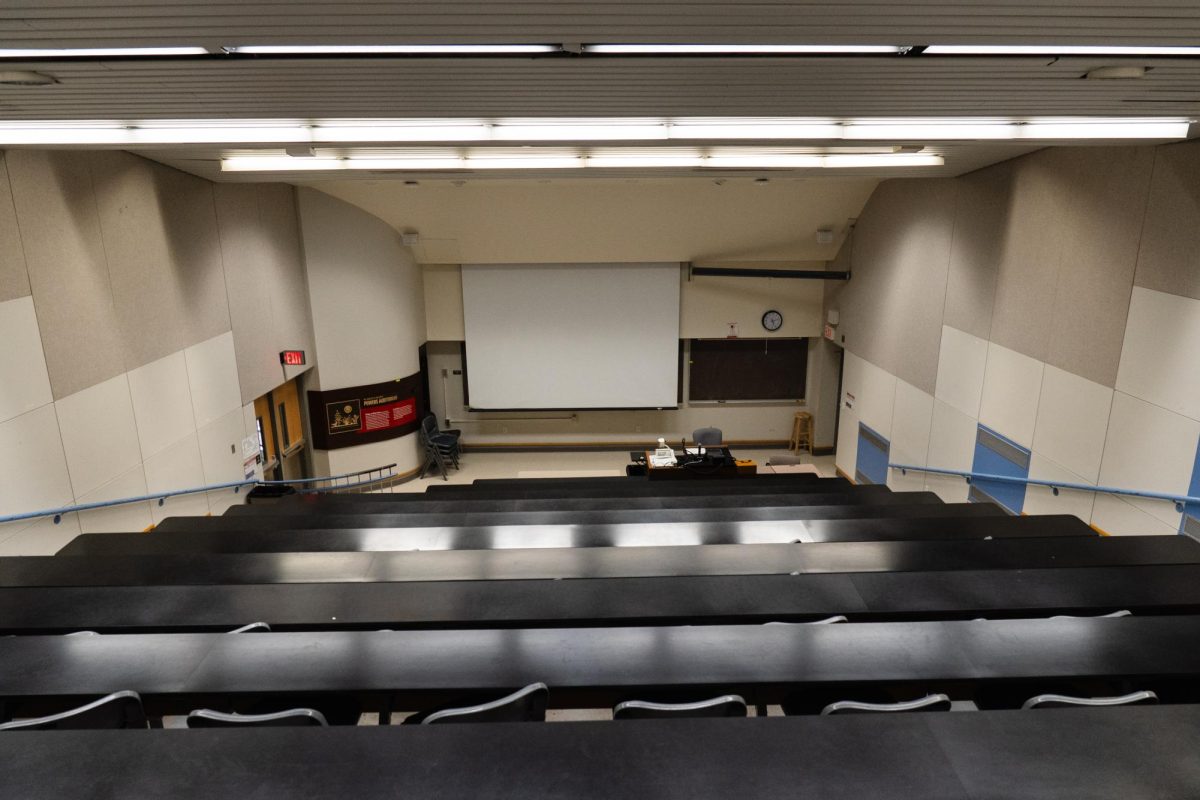Iowa State’s Crystal Nelson winning the fight against depression
Crystal Nelson, track and cross-country runner, said her depression reached a point last February when she thought about suicide.
September 1, 2015
Alone with her thoughts inside the comfort of her apartment, ISU women’s track and cross-country runner Crystal Nelson began questioning whether her life had a purpose.
The struggles with depression that she had spent the past couple of years at Iowa State trying to hide had reached a peak and left her pondering suicide.
“It was just upsetting because at that moment I was like, ‘I don’t even want to be here anymore,’” Nelson said.
A passion for running
Nelson grew up with the kind of energy that only physical activity could control.
While her classmates in grade school needed a nudge at the starting line of the mile, Nelson needed an incentive to not run two miles.
“It was also the one time I could become one with my competitive nature and not get in trouble for it,” Nelson wrote in a blog.
Her passion for running developed into a spot on her middle school’s cross-country and track and field teams and continued through her four years of high school.
The Winchester, Va., native was a three-time high school state champion in the 1,600-meter run and both the indoor and outdoor 3,200-meter runs. The result was a scholarship to run collegiately at Iowa State.
Nelson was entering a bright collegiate running career, but she was also entering the emptiest moments of her life.
Toughest days ahead
The week before Nelson arrived at Iowa State, her parents were in the process of getting a divorce.
Nelson said it was chaotic when her mom and dad helped her move in because they weren’t seeing eye to eye. She felt like she was stuck in the middle.
“I just felt like my life was getting out of control a little bit,” Nelson said. “I was searching for control, [but] I didn’t know where I could find it. I couldn’t get control in school.”
Nelson turned to food and nutrition.
“That did not work well at all because I took it to an extreme where my weight went way below a healthy weight,” she said. “When I realized that people were making comments like, ‘Oh my gosh, you look so thin. What’s wrong?’ I had to isolate myself a lot from people. A lot of times I wouldn’t even come out of my room because I just didn’t want to be around everyone.”
Nelson knew she had depression, and it would get worse before it started getting better.
“I was in my apartment [last February], and I just felt like everything was going wrong,” Nelson said. “That next day is when I pulled coach [Andrea Grove-McDonough] aside in the bunker at [Lied Recreation Athletic Center], and I was like, ‘I need help. I can’t do this alone.’”
Grove-McDonough could connect. She has experienced similar issues in her own immediate family and noticed from the time she arrived at Iowa State that Nelson was struggling.
Grove-McDonough told Nelson about her own family history and her own personal journey, which she believes helped Nelson open up.
“I said to her, ‘I could look at you and see you were not well,’” Grove-McDonough said. “I just felt like somebody needed to be there not only just to push her to get help but also just to be there for the days, for the dark days.”
Nelson went to see a doctor and was told she had depression.
“My doctor just said what I’m feeling comes from me being really anxious and having a lot of anxiety, and my eating disorder probably triggered it a lot,” Nelson said.
Nelson and Grove-McDonough’s relationship became more than just one of a coach and runner. Nelson became part of her coach’s family.
Grove-McDonough said she believed there was a time when Nelson questioned whether or not Grove-McDonough cared so much about her because she needed Nelson on the team.
“I realized that at one point,” Grove-McDonough said. “I think there was some doubt, and she needed to see not that I didn’t care, but I kind of didn’t care whether she wanted to walk away even from running that I was not going to convince her she shouldn’t if that was what was going to be part of her process to heal.
“But I still was going to be involved in her life if she would allow me to be. Because at that point, whether I should have or shouldn’t have, that ship had sailed. I was involved. I’d come to really care about her. That struggle brought us closer, and I felt a certain maternal sense to protect her or do what I could.”
Grove-McDonough told Nelson at the end of last year and again this year that the most successful thing she will have done in coaching will be if Nelson graduates and gets in a good place and the two of them get through this.
“I really feel like I’m in it with her,” Grove-McDonough said. “And that will be the thing I’m most proud of. Beyond anything she may or may not do athletically, beyond anything she did as an athlete last year. It really doesn’t mean that much in the end. But this will mean a lot.”
Blog about depression
Nelson wrote a blog about her experience with depression in May after the outdoor track and field season. She was back home in Virginia and said after posting her story she immediately began to receive positive feedback but later got backlash from people she was really close to.
She said she began receiving phone calls and text messages saying that it was a really bad idea to post, that she would never get a job and other people would see her in the wrong way.
“It kind of put me four steps backward because I felt so empowered and so good with myself for once, but then when I found out the people really close to me didn’t approve, it was really disappointing,” Nelson said.
Nelson decided to return to Ames for the remainder of the summer, where she could get support from her coach, doctors and counselor.
She said she’s still dealing with depression, but it’s better than it was earlier this year.
“I think what really got me through it was probably after track season and after the blog post and after the backlash I got from it, and I came back [to Ames],” Nelson said. “I’ll be honest, coach McDonough was like a mom to me. I think she was the person who really got me through it and was my biggest supporter.
“I just want to encourage people to get help and to know that there are so many resources on campus to go to and so many people that understand and that they’re not alone.”
















